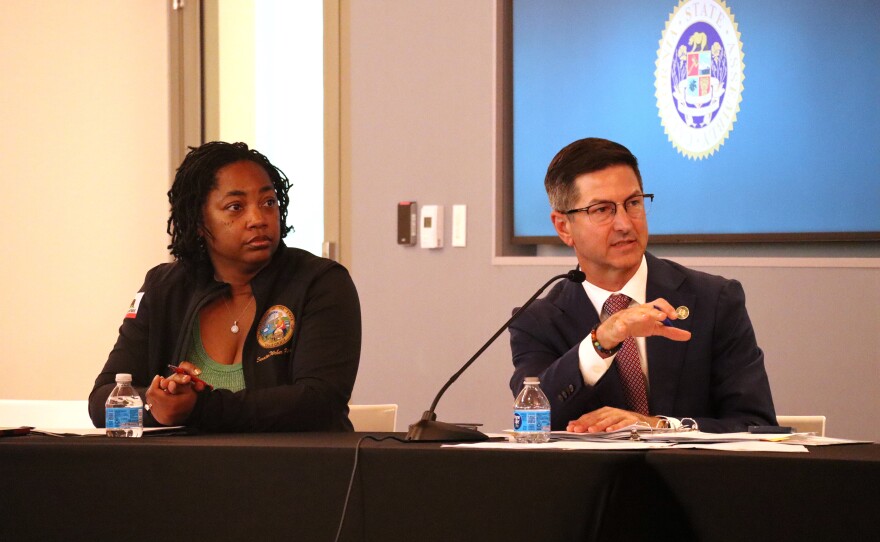Residents of rural communities throughout California get news, emergency alerts and cultural programs on the radio. At 16 stations, Radio Bilinguë broadcasts in English, Spanish and indigenous Mexican languages.
“Radio Bilinguë is usually the only reliable source in their languages for local news, emergency alerts, educational programing, civic information and, of course, our daily programs celebrating Latino arts and culture,” said co-executive director José Martínez-Saldaña.
When Congress rescinded more than $1 billion in funding for public broadcasting, Radio Bilinguë lost $300,000 in annual funding. They were also expecting more than $1 million in FEMA funds to repair their disaster alert system.
“This is a serious setback,” Martínez-Saldaña said. “Not just for us, but for the rural and low income communities we serve every day.”
Martínez-Saldaña and other public media leaders spoke at an informational hearing of the State Assembly’s Committee on Arts, Entertainment, Sports and Tourism on Wednesday. They said filling the funding gap will be a challenge without new, ongoing revenue sources.
KQED reduced its staff by 15%. KZYX in Mendocino lost 25% of its operating budget and had to lay off its news director, said Jennifer Ferro, president of KCRW.
“It'll mean fewer in-depth stories, fewer local stories, fewer interviews with, you know, their electeds who are really given the opportunity to reach their communities,” Ferro said.

Many community organizations that have supported public media in the past are dealing with federal funding cuts of their own, said Andy Russell, president and CEO of PBS SoCal.
“They're working through some really tough cuts,” Russell said. “Some of those traditional avenues and partnerships are not there.”
Assembly member Chris Ward, a Democrat who represents the 78th District in San Diego, chairs the arts committee. He said the hearing gave him information he can take back with him to Sacramento when the legislative session starts in January.
“What can California do more to be able to provide some financial support, to be able to help what we see as a community asset?” he said. “How do we facilitate creative partnerships?”
Without more support, he said, communities across California could see major losses in local news coverage.





